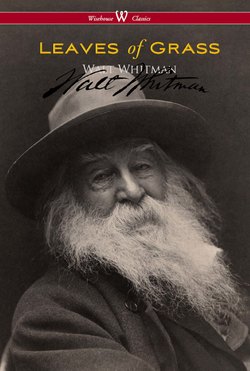Leaves of Grass (Wisehouse Classics - Authentic Reproduction of the 1855 First Edition)

Реклама. ООО «ЛитРес», ИНН: 7719571260.
Оглавление
Walt Whitman. Leaves of Grass (Wisehouse Classics - Authentic Reproduction of the 1855 First Edition)
Отрывок из книги
Leaves of Grass
by
.....
The messages of great poets to each man and woman are, Come to us on equal terms, Only then can you understand us, We are no better than you, What we enclose you enclose, What we enjoy you may enjoy. Did you suppose there could be only one Supreme? We affirm there can be unnumbered Supremes, and that one does not countervail another any more than one eyesight countervails another . . and that men can be good or grand only of the consciousness of their supremacy within them. What do you think is the grandeur of storms and dismemberments and the deadliest battles and wrecks and the wildest fury of the elements and the power of the sea and the motion of nature and of the throes of human desires and dignity and hate and love? It is that something in the soul which says, Rage on, Whirl on, I tread master here and everywhere, Master of the spasms of the sky and of the shatter of the sea, Master of nature and passion and death, And of all terror and all pain.
The American bards shall be marked for generosity and affection and for encouraging competitors . . They shall be kosmos . . without monopoly or secrecy . . glad to pass any thing to any one . . hungry for equals night and day. They shall not be careful of riches and privilege . . . . they shall be riches and privilege . . . . they shall perceive who the most affluent man is. The most affluent man is he that confronts all the shows he sees by equivalents out of the stronger wealth of himself. The American bard shall delineate no class of persons nor one or two out of the strata of interests nor love most nor truth most nor the soul most nor the body most . . . . and not be for the eastern states more than the western or the northern states more than the southern.
.....